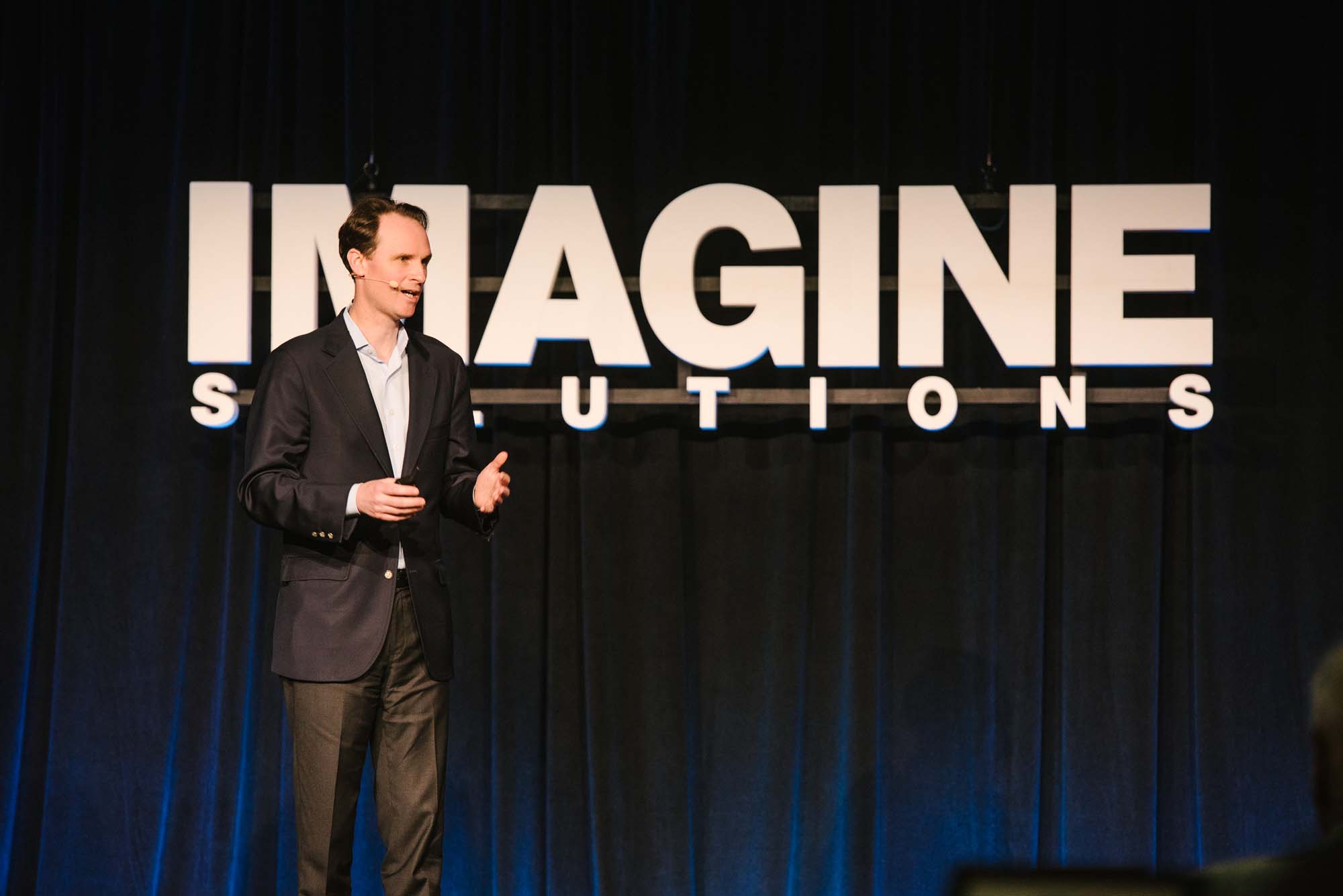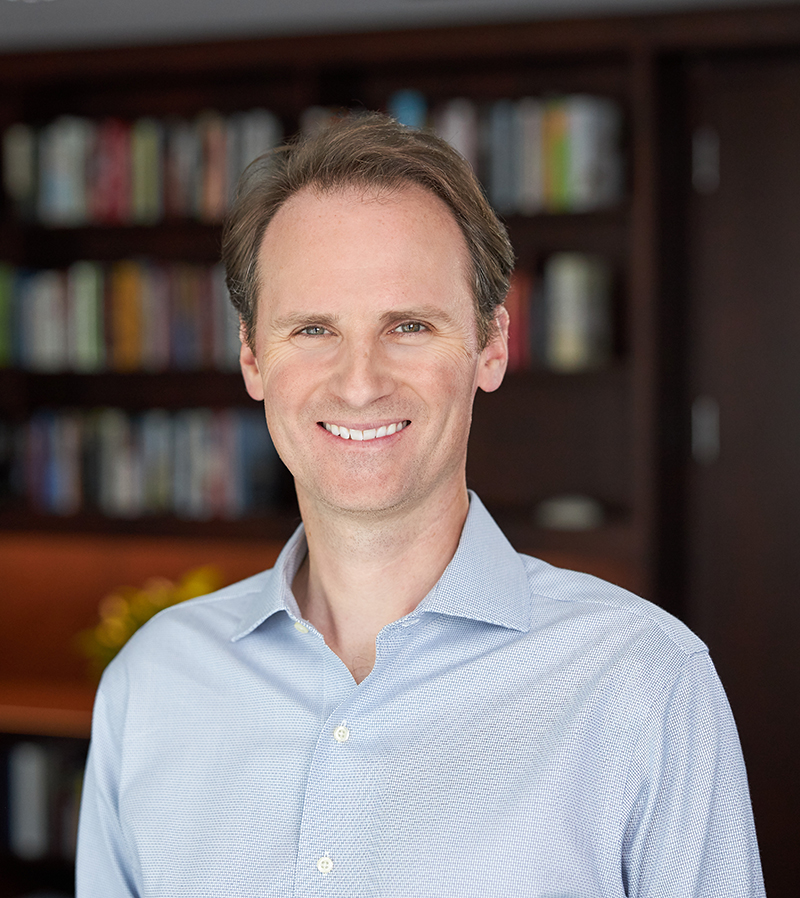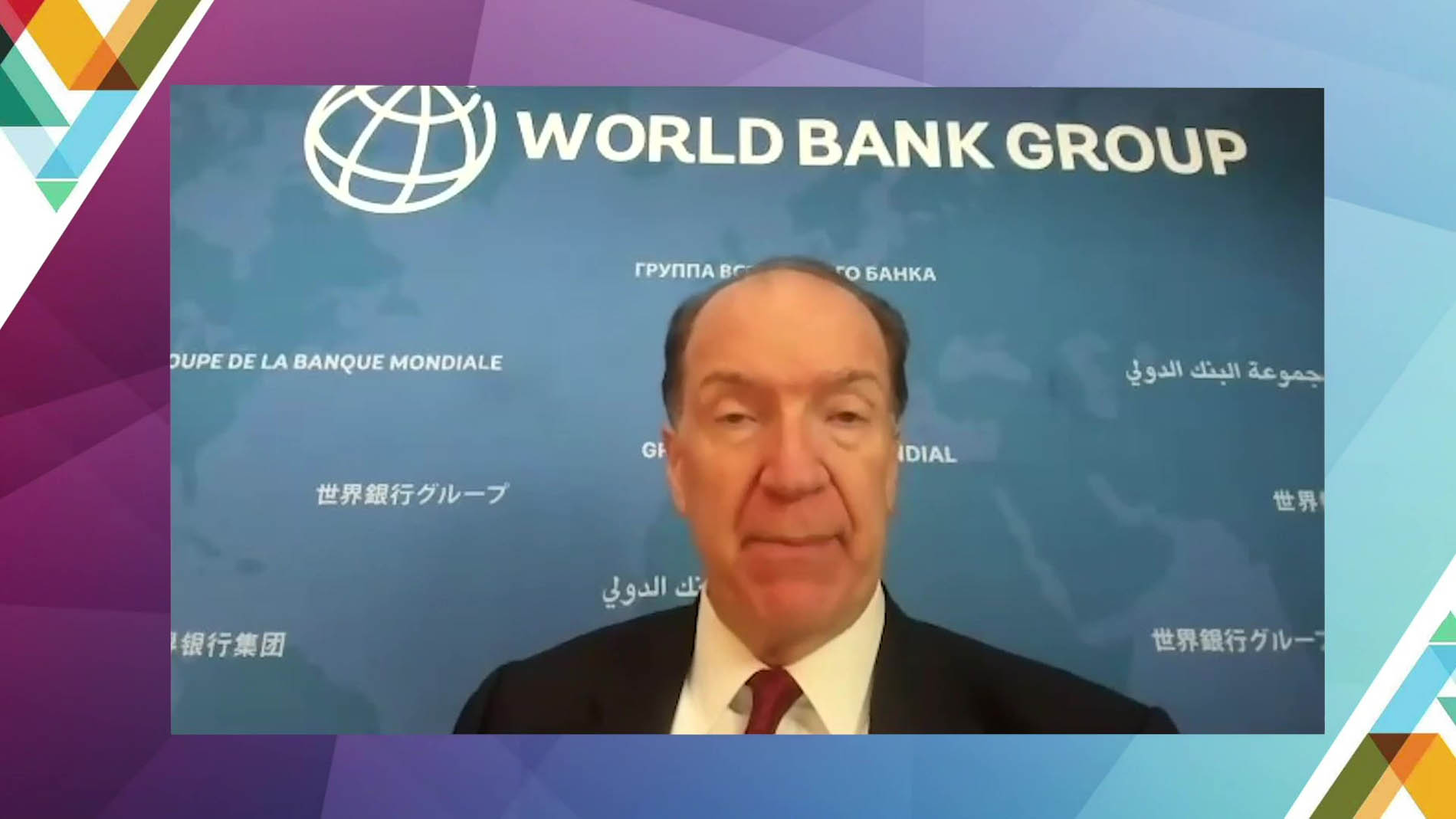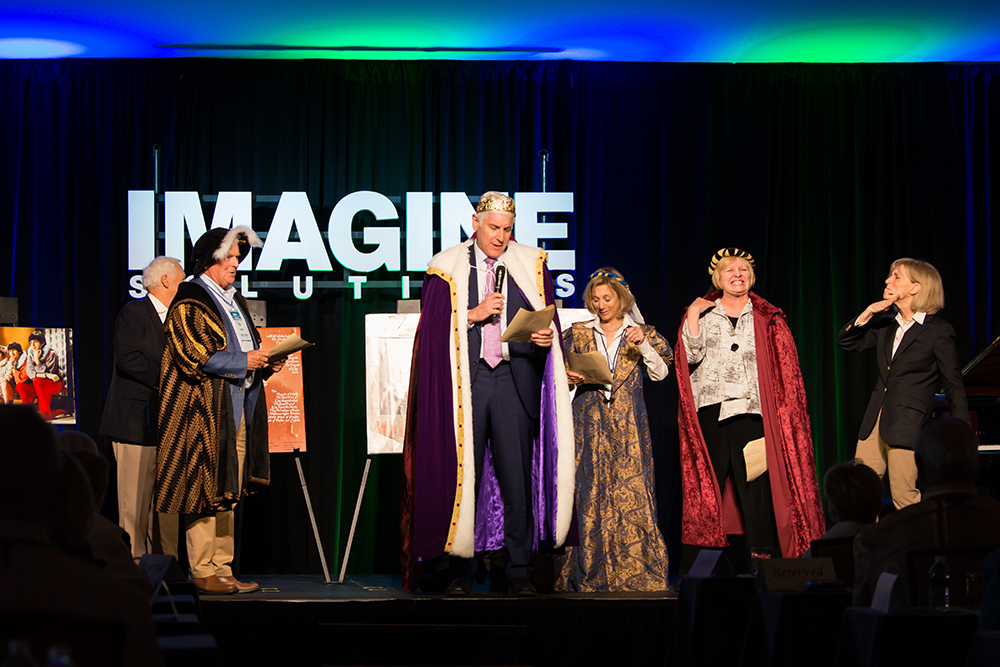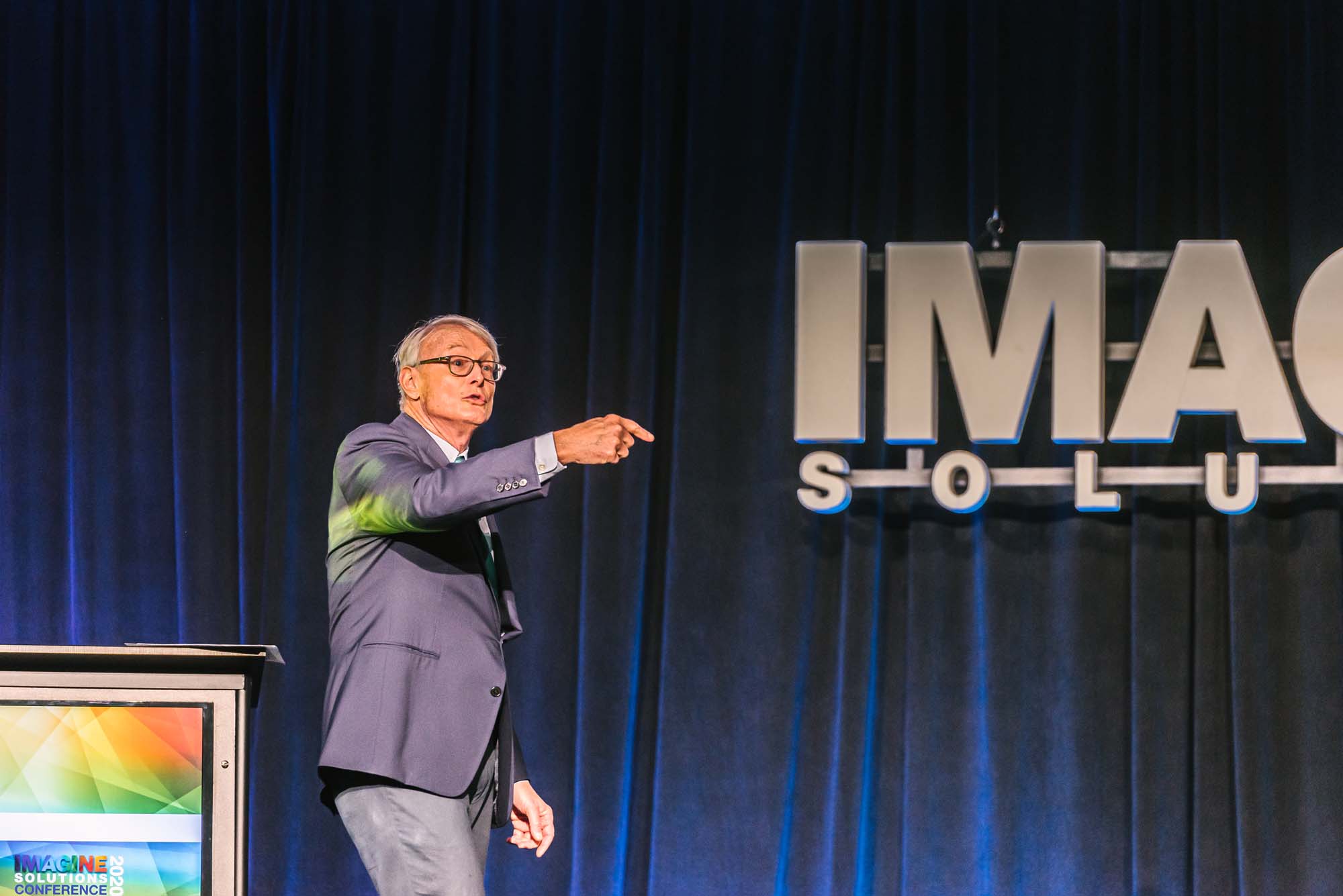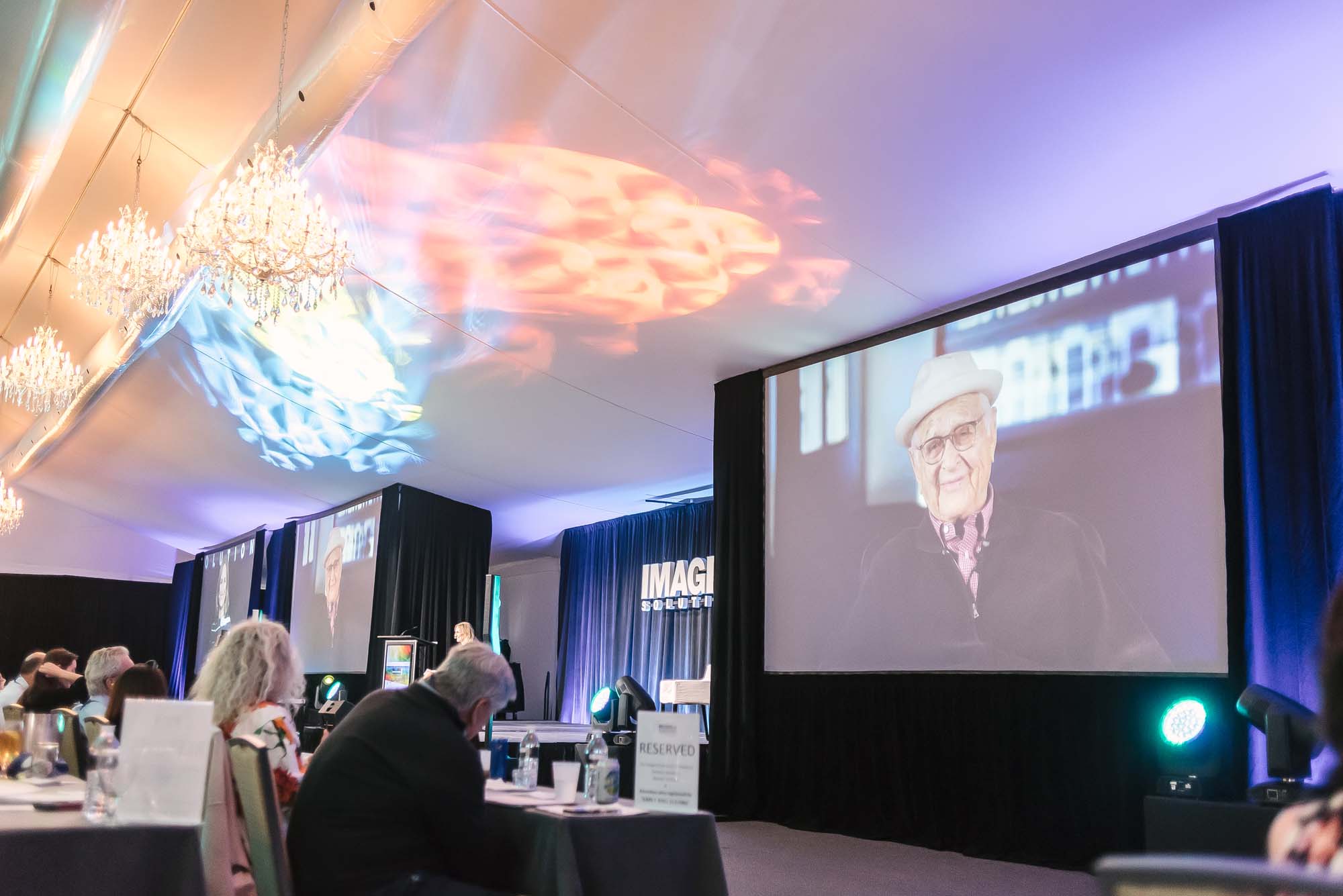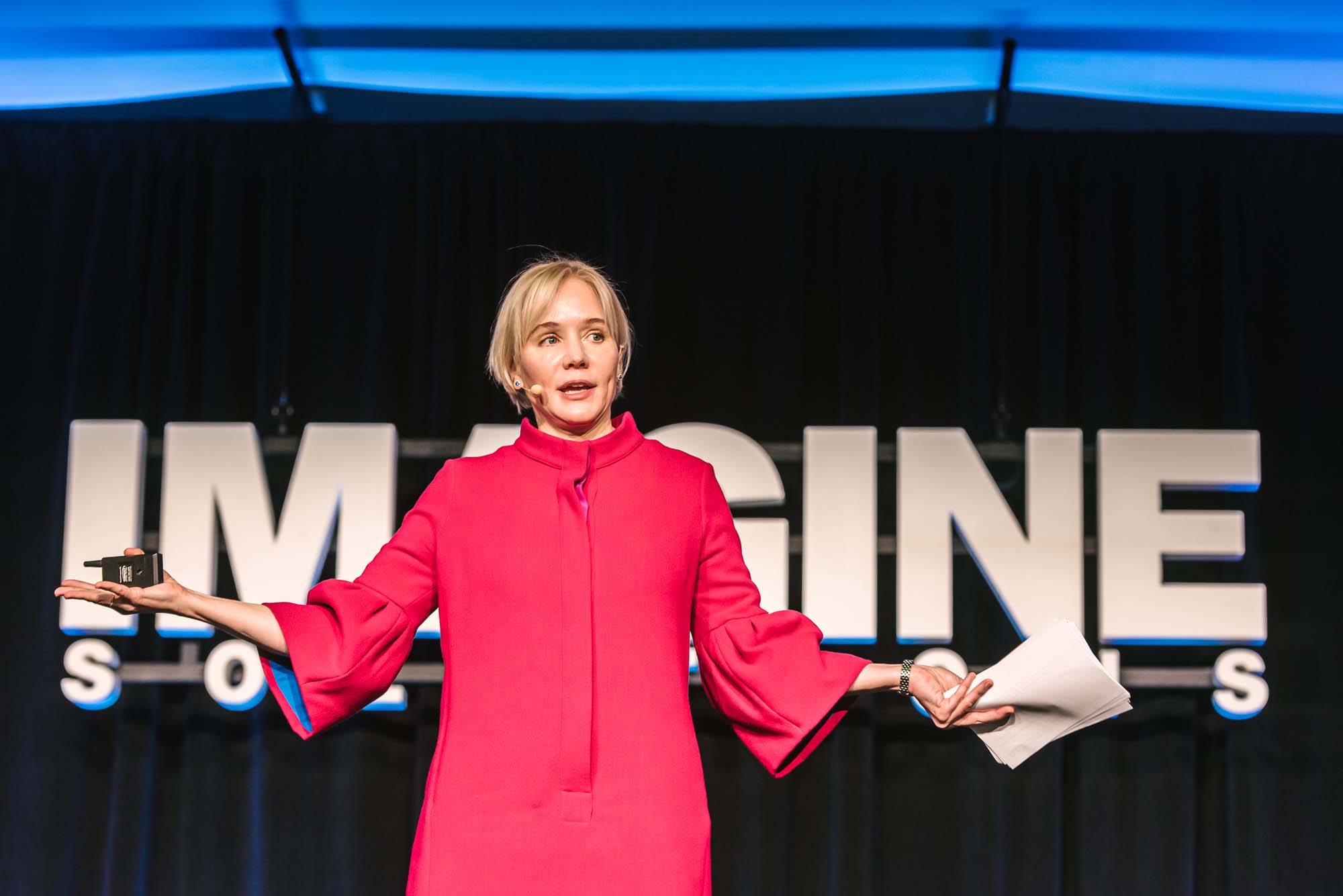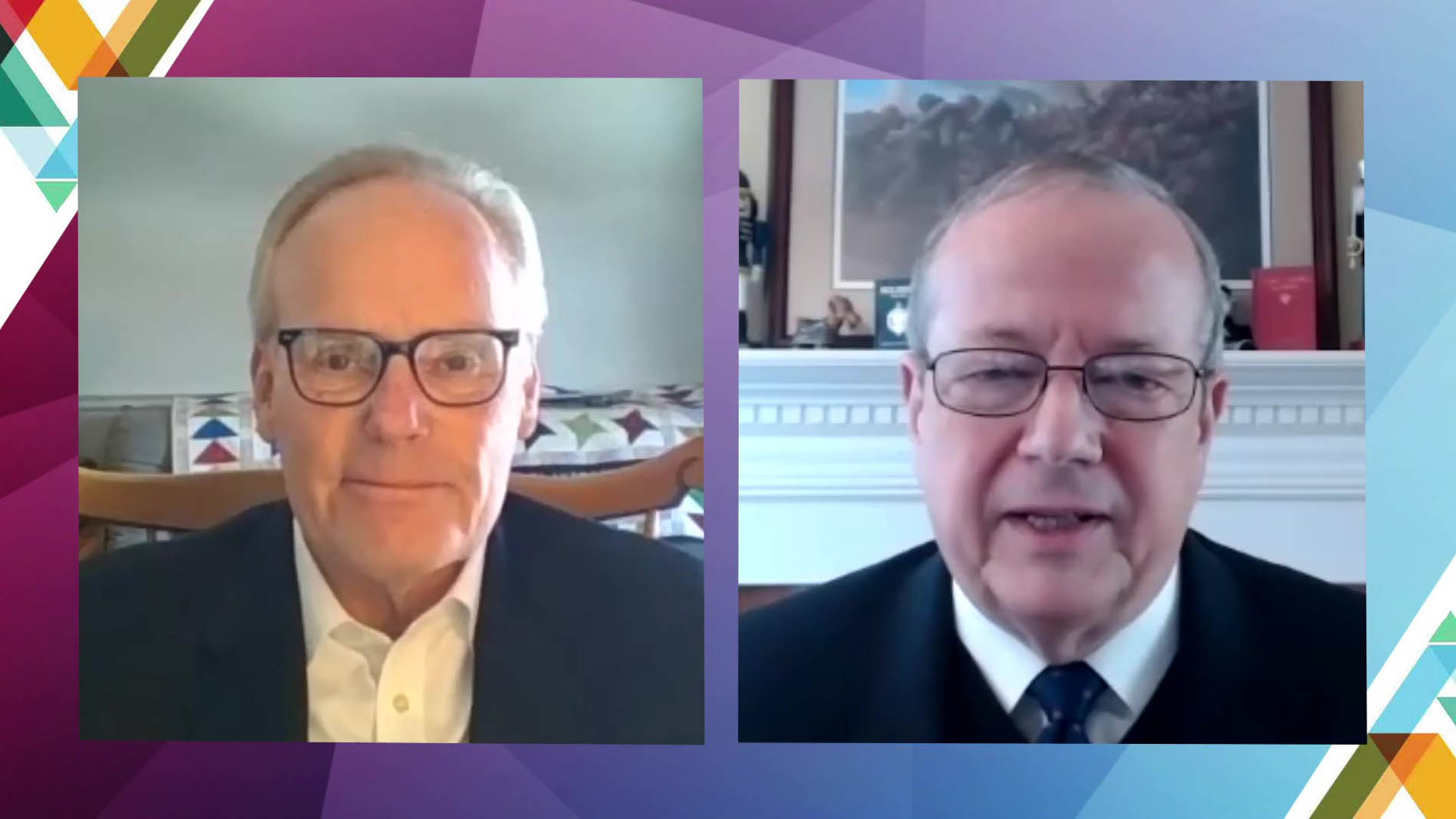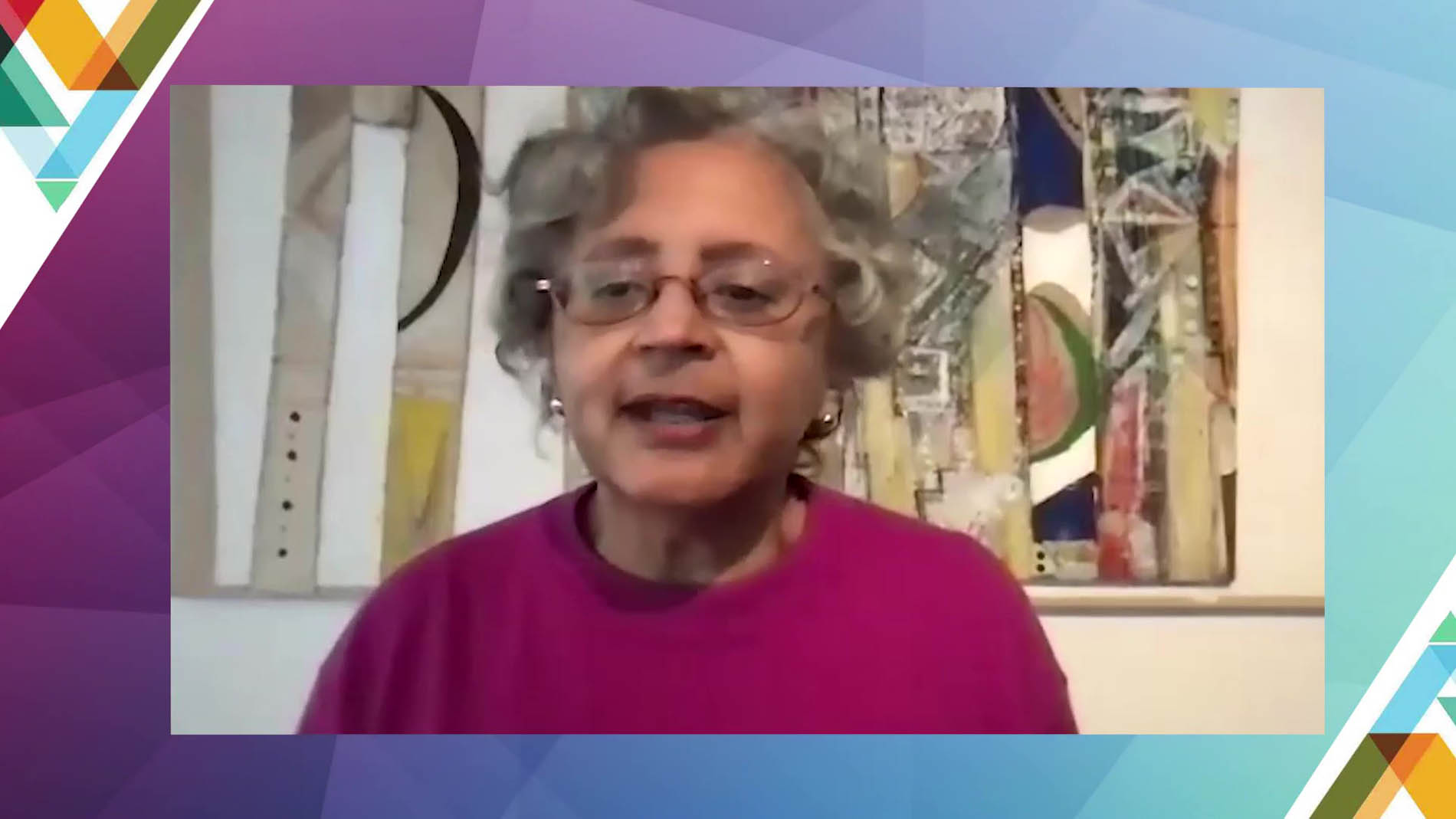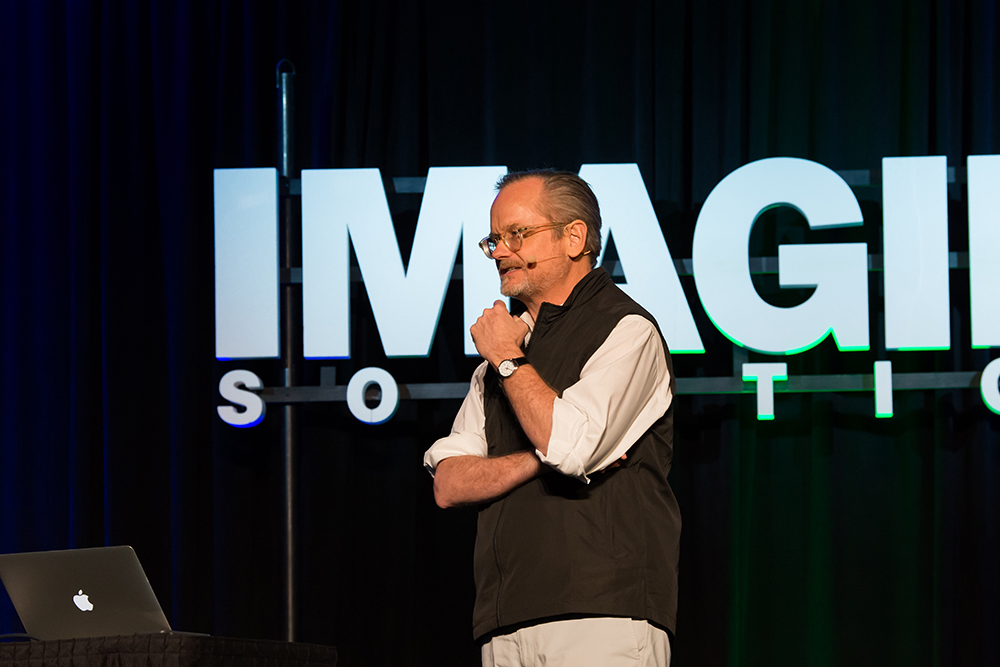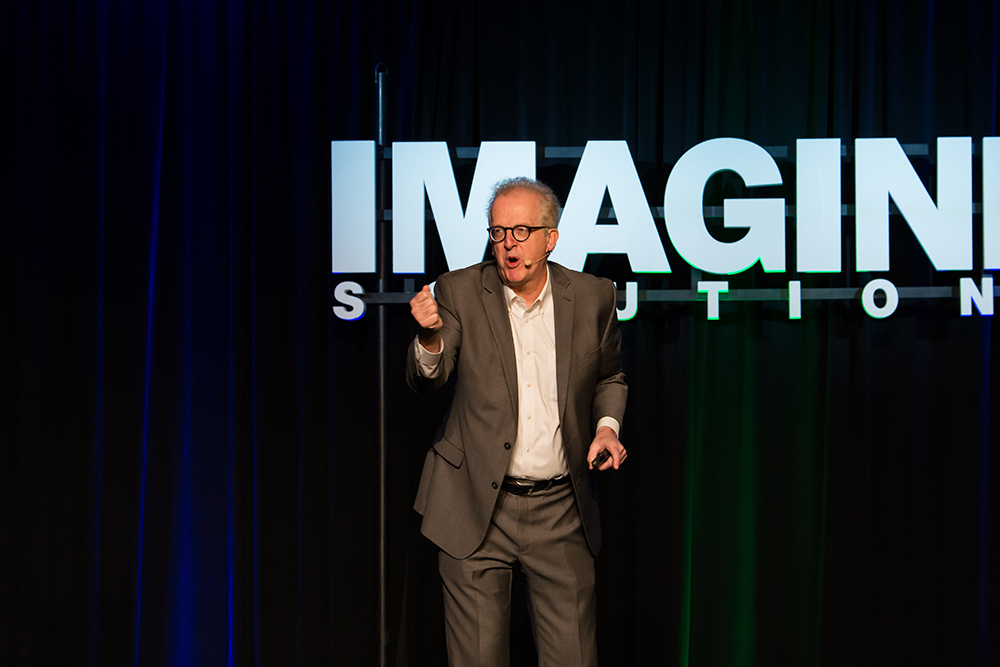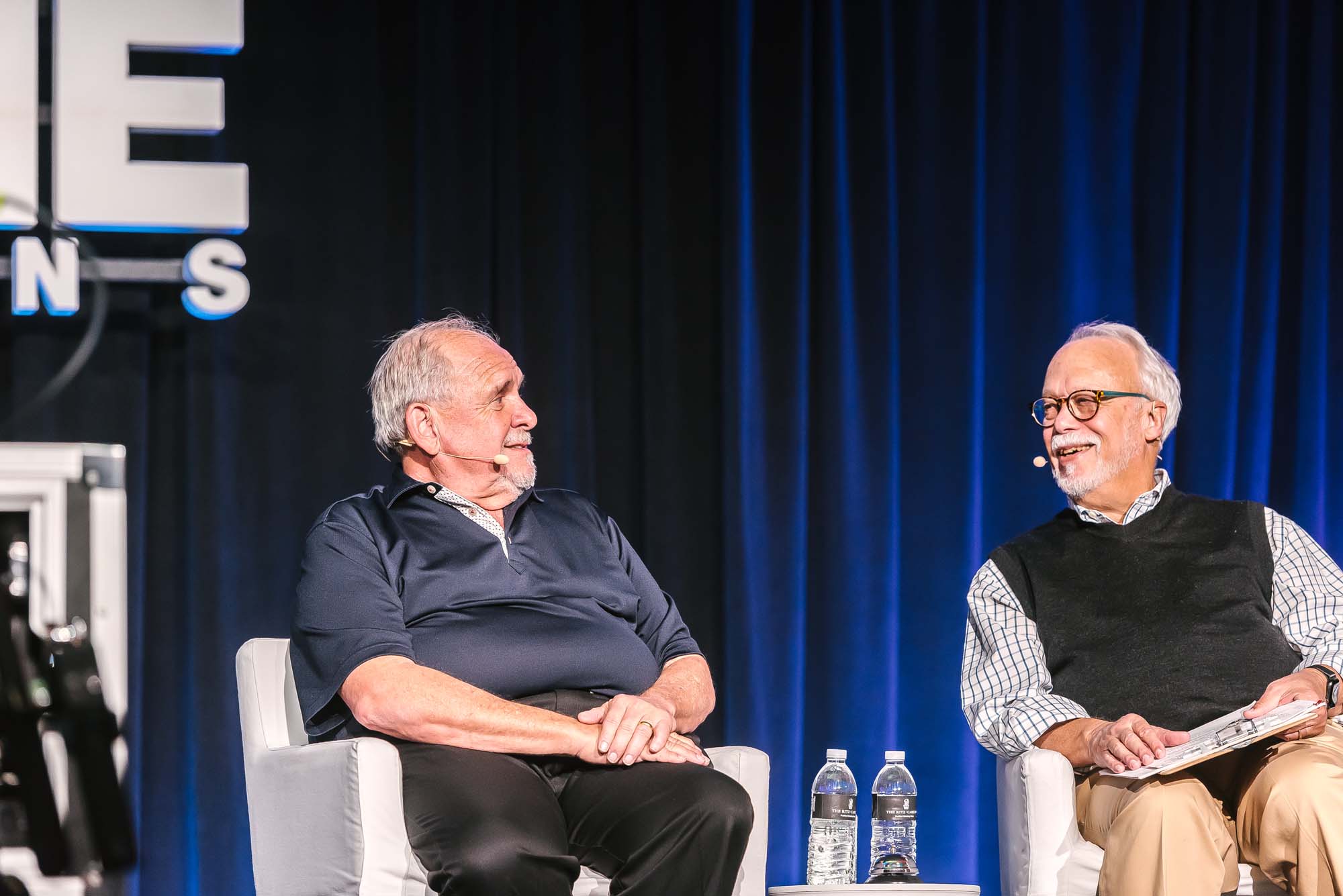00.00 he is in his own right an educator and author a scholar a researcher and an innovator he has a particular focus on media and how digital technologies and new media are affecting our society and how we as individuals learn please welcome John Palfrey thank you there you go good afternoon everybody Tyler thank you for the introduction and a great job moderating all day Randy and Ronnie and the whole team thank you so much for putting on this conference congratulations on ten years it's really a very exciting exciting place to be today and I also wanted to start by thanking all of you for being indoors on such a beautiful day you could be out on that Golf Course playing but you were in here talking about big ideas and have set aside part of your day or all of your day to be a part of this so thank you for being such a great audience I have loved this day and learned so much
01.00 it's one of the great things about my job as president of a foundation as I get to hear great ideas all the time but I think we've had a huge treat today I'm afraid I cannot shoot myself out of a rocket I do not have my daughter here to interview me nor do I have very exciting slides but I hope what I can provide in my 20 minutes or so is a dose of optimism so I love the name of this conference imagine solutions thinking about solutions I brought out one prop which is if you can see that but this glass of water to me is definitely half-full so I see all of these problems as solutions to be solved and I wanted to just take an example of one of the big complex problems that we have been talking about today and run it through some of the ways in which MacArthur Foundation through its Fellows program and otherwise takes up this issue but I also want to end actually focusing on a slightly different way on the future and on some of the people I think are most promising to do something
02.01 great about this issue of climate change to be clear my point is not actually about climate change per se you could put a pandemic or other complex problem in its place the issue really is though to think about the nature of the problems that we are facing today in this world they are substantially I think more complex than problems of thousands of years ago in some ways because of our interconnected economies because of the way digital technologies work because of the diversity of our planet and the way that it's growing and many forms of science so I actually think that speaks to the kinds of solutions that we need which I do are different than they were in the past so that's just really the piece I want to underscore is this notion of complexity and how it relates to the kinds of solutions that we need the story that I was going to tell today begins with the founders of the foundation that I work at these are John D and Catherine T MacArthur John D and Catherine T MacArthur like many of you
03.02 worked for much of their life in the north of the United States they were in Chicago and made a lot of money in life insurance and other forms of insurance and banking they then moved to Florida spent a lot of their life in Florida began investing in real estate very well timed in Palm Beach County and in Sarasota and then in real estate in Manhattan so they owned about 7700 apartments in Manhattan the last of which we recently sold this fall they also decided that at the end of their life they would leave much of their money to charity this was in the late 1970s and they were the third richest family in America at the time and they decided to leave behind about a billion dollars 1 billion dollars to found the MacArthur Foundation for which I'm very grateful and their vision for this foundation was quite unusual actually it's not necessarily the right answer but I'm the lucky beneficiary of it today which is they said in short we made the money you all figure out how to
04.02 spend it it was not a foundation that said this is exactly what we want you to do and I actually think going back to this idea of the complexity of the problems and the solutions that we need that that was itself a visionary act it's an act of great trust that those of us who carry out that legacy will honor the kinds of things they wanted to do but I think actually it was a very wise thing because it allows people to do things that are very creative in terms of the solutions that we support MacArthur Foundation since that time has become most famous for what you saw on the video earlier and what Tyler referred to as the genius grants we do not call it that those that we officially call it the MacArthur Fellows Program but in fact of course it is known as the genius grants it's a wonderful program many of you have asked me as I've walked around this conference how do I get one or how do I get one for my son or I got a nephew earlier some of you may have
05.00 seen a movie called the marriage story that just came out at the end of that or partway through somebody gets a MacArthur award my email has been flooded with people applying for the MacArthur award since the movie had it involved so I thought I would tell you how they actually come about for a long time it was quite secret as to how the MacArthur fellows were awarded and we've decided that secrecy is not necessarily a good thing I can say today that I was one of the selectors for this program I was not allowed at the time to say that I was one of the selectors but when I was announced as president they put it in the press release so I figure I'm now free to say I was a selector but there's a group of people who fulfilled different roles so we start off with a very large group of people who are nominators so I know that in this room there are nominators who we've asked to send us ideas of creative innovative people who might be worthy of this award there's then a second set of people who are the peer reviewers they are typically experts in the field so they're some in medicine there's some in the arts and there's some in teaching
06.01 and so forth and then there's a smaller group of selectors who and that was something I did was who then make the choices they then send that on to the board and to me as a president to review and to make these awards running that whole process are a group of unbelievably brilliant people the geniuses who choose the geniuses if you will an incredible staff who Shepherds all of these nominations through to the end and to stick with the story of climate change it turns out that in this year in 2019 when we awarded MacArthur fellowships to 26 different people and what that means as Tyler said is that they get six hundred and twenty five thousand dollars with no strings attached we in fact say to them we'll never call you again we're very happy if you come back to the foundation or reunions and so forth but the point is you can do anything you want with it and we hope that you will do good in the world that you will come up with creative solutions when we did that this fall at the end of our process which goes in lots of different directions lin-manuel Miranda
07.00 well before Hamilton and so forth goes to you know brilliant scientists and so forth that four out of the 26 people who got it this year were working on climate change so I am guessing that if we scrolled back into the 1980s that would not have been the case nor perhaps when John D and Catherine T MacArthur were setting out the foundation would they have guessed we need in 2019 for climate scientists artists and so forth in order to address the world's problems and I think this is part of that brilliance that they had the brilliance to say let's allow the people who are going to run this foundation forty some years from now to be able to address today's problems I would say though that this is not the only thing that MacArthur Foundation does it's a funny element of my job which is it's about 5% of our budget that goes to these fellowships but is at least 95 percent of the renowned of the foundation by a lot but the good news is we do have some other money that we can spend every year and I want to talk a little about how we allocate that to something such as
08.02 climate change this is a change I think in philanthropy which is that in recent years MacArthur and other big foundations gave to lots and lots of things we were recently doing grant making in as many as 50 countries and as many as 17 areas and we have reduced it to be much more concentrated on a series of things that we call big bets and I'm actually more comfortable with this strategy because I think it means that we can bring more power to bear on immediate and urgent problems climate changes one nuclear security is another and these are done across the world but in areas where we have expertise instead of being in 50 countries were in about five countries now so in the case of climate change where in the United States in India and in China and you might be able to guess the reason for that is these are the three largest emitting countries in the world for effecting climate change United States remains the largest emitter per capita but we are by no means the biggest emitter in the world China and India have far surpassed us
09.02 and they're growing at a much faster rate so the idea is to say we've set a goal which is a big crazy goal in the world which is to say we want to keep the planet from rising more than two degrees above the pre-industrial levels and we in a big bet are going to put lots of money every year into those people those solution providers who we think can do that in these three countries in the United States in India and China so think about the Fellows Program as go and do whatever you think is right to brilliant people with lots of promise on another hand what we're doing is giving money to people where we know what they're going to do with it and they're going to be aiming toward a goal this idea of strategic philanthropy again toward climate change but recently we've taken a slightly different look at the entire picture and this is something that I was hoping to leave you with as well today which is to say we have lots of things at our disposal beyond just being able to give out grants so if you think about how might we all be part of
10.01 a solution to something related to climate change there probably lots of things we can do so remember I mentioned the MacArthur family having all those apartments and the land here in Florida they also had a building in Chicago which is the one we work in called the Marquette building it's a 17-story building one of the first skyscrapers in America it's very beautiful and we own this building and occupy it and we're a landlord and so forth our building and the way that we operate in the world is another way that of course we can contribute to climate change so we're doing things to green that building and make it more environmentally sound that seems like an important thing that each of us can do toward this complex problem but the other thing we realized in addition to having a building is of course we have a bunch of assets as of the end of the year we had about seven billion dollars in the endowment realized that's a little bit lower today after we heard from Edie sorry to say but I guess that happens up and down we also have made a commitment in addition to that to do something around impact investing so you heard the water.org
11.00 story this morning we've decided to take independent from the endowment itself 500 million dollars and to invest that in solutions that might be for profits that can be nonprofits but the point is to take equity investments or debts that then allow these entrepreneurs social entrepreneurs to try to address things like climate change and I think this is actually a very important aspect of what we are now doing so if you think about the genius grant says go do anything you want unrestricted gifts people you think about those big bats as strategic philanthropy giving big grants to people where you know exactly what they're going to do we're now focused on saying to those who are investing in other ways we'll give you equity capital or debt to go do something that would bring other solutions to bear in service of this climate change and other initiatives we had and of course this comes against the backdrop of lots of people doing this I don't want to pretend at all that MacArthur Foundation is the innovator here I think we're doing things ambitiously and well but
12.01 the world of sustainable investing of course is growing very very quickly and there are lots of things that gets counted in that in that bucket I will say that for us the idea of sustainable investing broadly is actually too broad to think about it so we prefer thinking about it in this other way which is to consider a spectrum of the kinds of investments that we could make so this is what I wanted to pause on for a second which is I think that each of us could think about the ways that we could contribute to solving any of these problems and to figure out what our spread of tools might be just as we do at the foundation so on one end on the far right side where it says philanthropic grant making that's obviously making grants which i think is the right thing to do and hopefully we all do that in our daily life whether that's tithing 10% to our place of worship or that's giving to the kinds of local charities and food banks that need it or it's the kind of strategic things that we're talking about that is crucial to keep our society working of course
13.01 but also I think to think about what are the other ways in which we can use the assets that we have in order to make a big difference on something like climate change and for us that means saying we're going to pull some money aside and invest it in kinds of things that philanthropy has not typically put money into like these for profits or these nonprofits that are taking equity and debt and now the most recent conversation and the big conversation which we do not yet have an answer on to be clear is thinking about the endowment itself so if we have not quite seven billion dollars in the bank which if you think about how the math works the IRS says we need to spend about 5% of that a year so we have about 350 million dollars a year to spend on grant and on administrative things do you think about that seven billion dollars how do we invest that money and is it consistent with what we're trying to accomplish and one of the tricky things that we are grappling with right now is that we are invested very very broadly in the economy our philosophy like most
14.01 big endowments and this is true of universities it's true of big museums is true of high schools that have big endowments is that they've tended to invest for the highest risk adjusted returns regardless of where that money is invested now the complexity that we have at the moment is that we have investments in lots of things that we know from the science are not contributing to the climate change solutions but in fact are part of the problem and so one of the big questions that we've been asking ourselves is as we look at all these tools that we have is it inconsistent for us to be say in oil and gas exploration at the same time that we are giving grants to address climate change and you may come down on one side or another of that debate but that is something that is roiling through many of these big institutions including our own and I think is an important question for all of us to ask on our own and I'm not positing what you should do or even what we will come out but we are asking that hard question pivot if I might to one other setting in
15.00 my last couple of minutes before I was president MacArthur Foundation I had an unbelievably fun job which was to be the head of a high school I was head of a school called Phillips Academy in Andover Mass it's an amazing wonderful place it has 1,100 young people and they come from all over the world it's a need-blind school so you apply and if you are able to get in and do the work regardless of whether you can pay you get to come and these kids are so fun and they are so smart and they are so able if you ever need a dose of what will make you feel good about the world the glass half-full example just go to one of these high schools so one day early on in my time as the head of school you can imagine me sitting in a great office in New England in a classic New England fall day there knock on the door I guess they wrote an email to my assistant but proverbial knock on the door and in come a bunch of students want to talk to me about climate change I said great I'm interested in climate change I'd worked for EPA for three years I was ready for them this was
16.01 going to be good educational moment and they sat on the couch in front of me and I said what's on your mind and they said well mr. Palfrey we really want you to divest from the endowment in certain things that are affecting climate change and I said okay we are plainly invested in companies that affect our climate tell me more they proceeded to give me an argument that wasn't a very good argument in fact it was a terrible argument they had not rehearsed it very well and it was straight off of a series of talking points which by the way I had seen on the internet earlier there is a organizer who had proposed to students to go around to their heads of school and their and their head of a university and if you're wondering and ever actually has about a 1.1 billion dollar endowment so it's a meaningful endowment as many colleges and universities are so it was a meaningful question a meaningful amount of money but their argument was just terrible and they came in my office and they were sort of meek about it and I thought okay there are lots of responses this I could just run
17.00 roughshod over them and say this is a terrible argument get out of here or I could make it a teaching moment so I as I was listening to them make this really terrible argument I said okay I'm gonna tell them straight but we're also gonna make it a teaching moment so I said to them look this was a terrible argument you made it terrible they were very surprised to have the head of school to him they had made a terrible argument I'm sure I was intimidating enough it looked back at me eyes big as saucers and I said but it's okay I'm gonna give you another shot let me tell you what I will do which is we have a Board of Trustees and an investment committee who have to make this decision I am not the decision-maker I'm one of those trustees but there are 22 trustees but you are not going in there if you're gonna be that bad so here's your job actually go learn this not from a bunch of talking points but go learn the science and go learn this argument and make a better argument and I'll put you in front of the Board of Trustees and I'll put you in front of the investment committee and you will be able to make your case I don't know what's gonna happen but you will get a shot at this so I
18.01 still big as saucers okay mr. Palfrey and they kind of go out of the room a few weeks later they came back when the trustees were on campus they made their argument I will say it was 10% better it still wasn't especially good it's a very complicated argument right so you know we all need electricity we need lots of things and if you divest from what's and you know what's the effect they were okay it's a little mediocre but they improved and that's important and it turned out that at our school there's a policy and the policy says that we will divest and we have divested from things but only if there is a strong community consensus and so what we on the board said look we will test this we will go back out into the community and say is there a consensus that we ought to divest from fossil fuel burning companies that consume fossil fuels and if so we will divest will figure it out it's complicated but we'll figure it out but we then ran a process where I put it in the school newspaper we ran a bunch of forums and these kids were a little bit heroic right at this point because they've prompted this great big
19.00 discussion about climate and the interesting part was there was not a community consensus that way ought to divest and there are lots of reasons so some people said look we spend our money principally on two things we spend the money on scholarships to be a need-blind school meaning that any kid anywhere in the world can come here and we rely on endowment returns for that and we pay our teachers very very well which we should and shoutout to the teachers and superintendents who are here today really important and that's more important than whether we are invested in these things and if you divest you might have less to do this query as to whether that's true but that was part of the discussions anyway there was not a community consensus and what we ended up doing was staying invested in those stocks but we said we're gonna do something else we will make a climate action plan and we will look at all the things that we could do a little like that slide I had up before all the other things that we could do to be making a difference and some of that was educational and some of that was our buildings we managed to find a way to invest in a solar farm that was being developed so all of our electricity for
20.01 this high school came from solar energy and so forth just as you might put you know solar panels on your home and Naples and be able to fuel your life that way in any event there are lots of things that we can do that might not be this divestment point so as I come back around to the end of this I am so excited to been able to spend this time with all of you and the reason is that I have spent the day thinking about a lot of solutions and all those things that we can do with the different tools that we have as individuals to address the most complex problems of our day and I'm very grateful to be in partnership with all of you as we take them on thank you so much really good thank you very much

